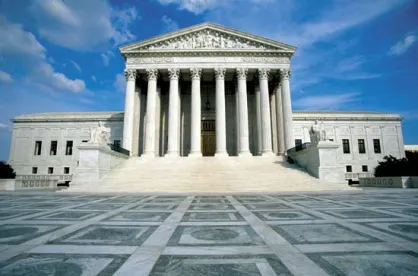On May 16, 2016 the United States Supreme Court issued an opinion regarding the meaning of “actual fraud” under the Bankruptcy Code. Husky Int’l Electronics, Inc. v. Ritz represents a win for creditors by making it easier to show that a debtor committed fraud. A showing of a more general fraud, as opposed to a specific false representation by the debtor, will suffice to prevent certain debts from being discharged in bankruptcy.
Background
Husky International Electronics, Inc. (Husky) supplied electronic components to Chrysalis Manufacturing, Corp. (Chrysalis). As a result of the supply relationship, Chrysalis incurred a six-figure debt to Husky.
Daniel Ritz (Ritz) was a Chrysalis director and shareholder. Rather than paying the Husky debt, Chrysalis transferred Chrysalis’ funds to other entities Ritz controlled, thereby draining Chrysalis’ assets that could have been used to pay its debts to creditors like Husky.
Husky sued Ritz, seeking to hold Ritz personally liable for the debt owed by Chrysalis to Husky. The lawsuit was brought under a Texas law that allows creditors to hold shareholders responsible for corporate debt in the event of fraud.
Ritz responded by filing a Chapter 7 bankruptcy case. Husky then sued Ritz in Ritz’s bankruptcy case, again seeking to hold him personally liable for the debt and seeking a determination that the debt was “non-dischargeable” under the Bankruptcy Code.
While most debtors receive a “discharge” (or a forgiveness of) prepetition debts, a debt that is “non-dischargeable” is one that is not forgiven and one in which a debtor remains personally liable even after filing for bankruptcy. The Bankruptcy Code specifies which debts are non-dischargeable. These debts include “any debt … for money … obtained by … false pretenses, a false representation, or actual fraud.”
The dispute in Husky was whether Ritz was required to make a false representation to Husky in order for the Husky debt to be deemed non-dischargeable.
Ruling
The Supreme Court held that the term “actual fraud” encompasses fraudulent transfer schemes, even when those schemes do not involve a false representation. The court reviewed the historical meaning of “actual fraud” and found that the phrase has long included the kind of conduct that occurred in this case, i.e., a scheme designed to hinder the collection of debt. According to the court, a false representation has never been a required element of “actual fraud,” and the court declined to adopt it as one.
The court left open the question of whether the debt to Husky was “obtained by” Ritz’s asset-transfer scheme. Typically, a person transferring money in connection with a fraudulent transfer scheme does not “obtain” anything. In this case, however, Husky could argue that Ritz “obtained” the money because he transferred Chrysalis’ assets to other companies Ritz controlled. This factual issue will remain a sticking point for the lower court to resolve on remand and will likely be addressed in future cases.
Conclusion
The good news for creditors is that this ruling will likely deter sophisticated debtors from transferring assets among corporate shells to obstruct a supplier or creditor’s ability to collect debt. It also means that creditors now have a recognized weapon in all bankruptcy courts regarding the diversion of assets by a contractual counterparty.





 />i
/>i
